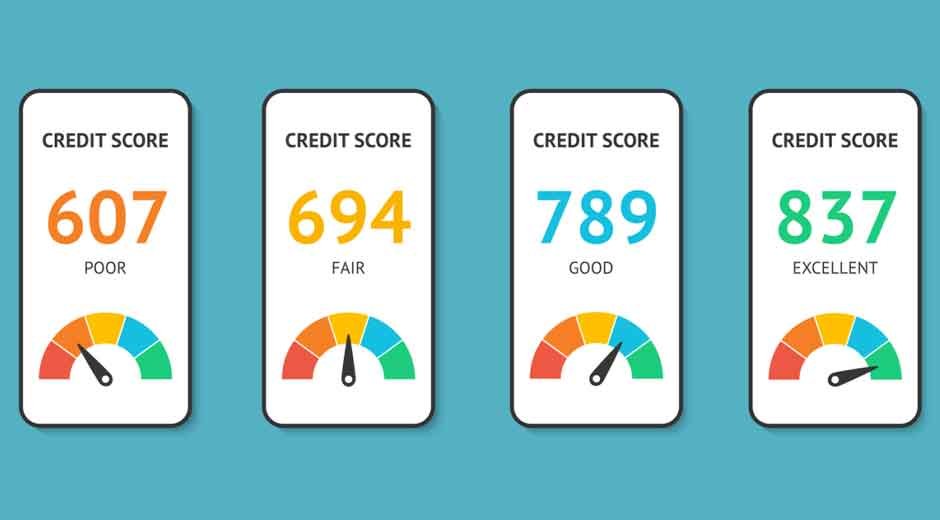How Your Credit Score Actually Affects Your Car Finance Options

While most car buyers acknowledge that their credit scores will impact their car-buying experience, few understand the actual levels of impact. Your credit score determines the interest rate that lenders will offer, how large of a loan you will qualify for, the tenures available and many more integral facets of the loan process. Understanding how and why your credit score impacts these offers can save you thousands of dollars.
Lenders need a way to quickly assess risk. A high credit score means that you have a lengthy history of paying your debts on time. A low credit score does not necessarily mean you’re a bad borrower. However, it does make lenders more apprehensive about offering competitive rates. This apprehension is exhibited in the terms you receive.
What Different Credit Scores Actually Mean for Your Loan
Credit scores range from 0 to 1,200. Where you fall within this range means everything to lenders. If your score exceeds 700, you’re in excellent territory. Lenders view you as a low-risk borrower, meaning access to lower interest rates and lender bonuses are at your disposal. These interest rates could range anywhere from one to five percent lower than a borrower with a fair score alone (generally 500-700). A good score is 500-700. Lenders are willing to finance a majority of borrowers in this category; however, rates are generally higher than those over 700. Yet, sufficient competition exists within this range; if you’re fair, you’ve got choices.
Those with credit scores below 500, however, may find access to loans tedious but not impossible. These borrowers may require larger deposits or higher interest rates, but finance is possible.
What Actual Interest Rate Impacts Get Covered
But it’s with interest rates where folks seldom explain properly. When considering financing a vehicle worth $30,000 over five years, an interest rate of 6% on fair credit would result in a monthly payment of $580 and $4,800 worth of interest (with this rate, you’d pay off the vehicle in five years). If someone with poor credit receives a 9% interest rate on the same vehicle and same loan tenure, their monthly payment is now around $623 and $7,380 worth of interest over the term of the loan (an additional $2,580 for taking out the loan).
This equates to only an additional $40 a month but over time (and compounded), it makes a significant difference. Thus, when people focus on improving their credit score, even marginal improvements, before applying, it’s because improvements can save money down the line.
Why Getting Finance Isn’t As Hard As Many Think
One widespread misbelief about car buying – and lenders – is that without perfect credit scores, buyers will never become owners. This is false. The lending industry has changed drastically in recent years and with improving economic conditions comes favorable lending options for all buyers – even those with less-than-stellar credit scores.
Many dealerships have multiple lenders with whom they partner who specialize in certain credit profiles. For instance, some lenders specifically target prime borrowers (excellent credit). Other lenders benefit those who have average scores or previous hurdles with credit. Those who believe there are no options for their subpar credit situations should investigate places that offer car finance through various lending partners because they may specialize in opening doors that single banks cannot.
The key is disclosure; lenders want to know your current status. An experienced finance team will avoid wasting time with applications that won’t work so that they can guide you down a path that most suits your needs.
What Adjustments Can Help Improve Your Situation
Your credit score is not static forever. If you’re planning on buying a car in the coming months, there are steps you can take to improve your standing. First and foremost – dispute any errors on your credit report – they happen more often than you’d think and disputing them can bump your score almost instantly.
Paying down existing debts also helps – credit cards especially – as lenders review total debts vs income and a reduction means that you’re a more attractive buyer. If you have multiple credit cards and use them responsibly (low balance payments on-time), this helps your score more than closing them and thus should be the way to go.
Additionally, avoid applying for new credit cards in the months leading up to seeking car finance; this looks unfavorable at lenders when additional inquiries pop up on your credit file, indicating that you’re looking for more credit than they may ideally want to give you.
The Deposit Dilemma: It Changes Everything
The best way to offset a low credit score is to supplement it with a larger deposit upon purchase. Buyers who put down substantial amounts are asking for less money essentially; lenders want their risk decreased which often results in more competitive terms (yet still not as good as those with high credit scores).
The ideal deposit is 20%, but anything over 10-15% will make a significant difference in what lenders are willing to extend.
Even some buyers with poor credit find that they need to wait just a few more months until they can up their deposits and then they’re presented with finance options not available previously.
The deposit also helps reduce the loan-to-value ratio, something lenders care about tremendously; if borrowers can reduce the amount they’re asking for relative to the price of the car, the less likely they’ll end up underwater if something drastic happens.
Getting Pre-Approved Makes Sense
Before you go out looking for a car, you should get pre-approved for finance – or at least understand what you’re approved for now relative to your current credit situation.
This gives you solid numbers on how much you’ll qualify for based on your current assessed profile; no one wants to find their dream car only to learn later that they can’t afford it.
Pre-approval gives buyers increased negotiation power; essentially buyers can focus their time on negotiating price instead of simultaneously working on price and finance if they already have their budget ironed out.
This also proves to lenders that you’re a serious buyer – dealers either private or dealerships will take pre-approved buyers serious which often results in better deals during negotiations.
The Bottom Line on Credit Scores and Car Finance
Yes, your credit score certainly impacts how much car finance you’ll receive. However, other factors play into lenders’ decisions beyond pure numbers.
Your employment stability, current debts and deposits can soften numbers that otherwise would significantly steepened your loan amount.
Yes, an excellent credit score assists but there are thousands of avenues of flexible finance waiting for average and below-average borrowers.
If you understand how your credit situation impacts various processes, you’ll make better decisions about timing your purchase and in turn save thousands on interest over the term of your loan.



